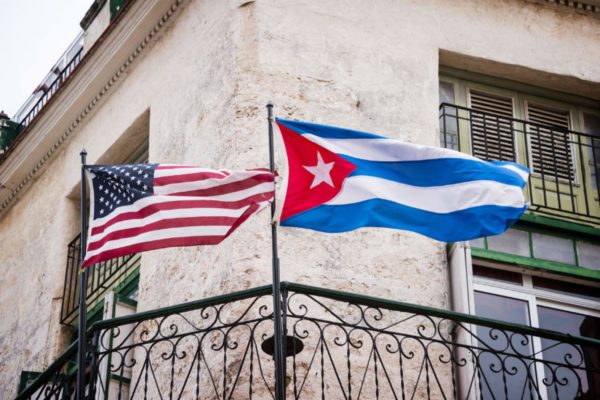President Donald Trump’s reversal of his predecessor’s Cuban policies proves once again that all politics are local. The White House says that the regime of Raúl Castro should reform its own political structure, become more democratic and release political prisoners. However, the U.S. does not impose these broad internal reforms on other nations such as Russia and Saudi Arabia. Why treat Cuba differently?
Only one American serviceman has died confronting Havana. He was an Air Force pilot shot down in Cuban airspace during the 1962 missile crisis. On the other hand, Washington has renewed political and trade relations with the autocratic regimes in China and Vietnam despite their armed forces having killed thousands of American soldiers in the Korean and Vietnamese wars.
Washington continues to punish Cuba because of U.S. domestic politics. Nearly a million refugees fled from Cuba since 1959, and most settled in South Florida. Those who came for political reasons formed a powerful lobby that has been instrumental in the making of every Republican president from Richard Nixon to, yes, Trump. Republican Party debts remain more important in the U.S. relationship with Cuba than the island’s actual behavior on the international scene.
Here is where domestic politics enters the equation. Punishing Cuba satisfies only one dwindling constituency in this nation — Cuban refugees mainly from the first two decades of the revolution. U.S. Rep. Mario Díaz-Balart — who stood prominently at Trump’s side as he signed the renewed restrictions — serves as a case in point.
In the 1950s, the congressman’s father, Rafael Díaz-Balart, served as Fulgencio Batista’s deputy minister of the interior, the ministry responsible for internal security and running the prisons. Rafael Díaz-Balart and other officers of Batista’s dictatorship fled from Cuba during the first weeks of the Cuban Revolution in January 1959.
What is more, the elder Díaz-Balart’s sons have family ties to the Castros. Mario and his brother Lincoln, the ex-U.S. congressman from South Florida, are cousins of Fidel Castro’s first-born son, Fidelito, who remains loyal to the revolution. They owe this family link to their aunt, Mirta Díaz-Balart, who married Fidel before he began his rebellion against the Batista regime. The couple divorced in 1954 while Fidel was spending time in brother-in-law Rafael’s prisons.
This first wave of pro-Batista refugees established several anti-Castro movements in the Miami and New York areas as early as 1959. Soon thereafter, they were joined in exile by a massive wave of politicos who had opposed Batista along with Fidel but found themselves pushed aside as Castro’s guerrilla revolutionaries seized control of most governmental institutions. Among the refugees were Catholic activists and middle-class youths from the universities whose departure from Cuba by the thousands was financed by the CIA and other U.S. agencies. For more than a half century they have been taking their revenge on those countrymen who remained with Fidel.
By 1981, the most politicized of these two groups — the Batistianos and the exiled moderate revolutionists — joined together in the Cuban American National Foundation (CANF).
Modeled on pro-Israeli Jewish groups, the CANF dedicated itself to lobbying the U.S. government to tighten restrictions on American travel and trade with Cuba. The foundation raised money for political candidates mainly but not exclusively from the Republican Party who promised no quarter for Castro’s communist dictatorship. Their effective anti-communist campaign lasted well beyond the fall of Fidel’s chief benefactor, the Soviet Union.
Yet, Fidel did not fall. Fidel was able to rule for 47 years, retire peacefully and leave power to his brother.
Trump’s directive will achieve two out of three of its intentions. 1) It will reduce U.S. investments and tourism in Cuba. 2) It will satisfy the resentments of the first generation Cuban-Americans for the loss of their homeland to the revolutionaries; in gratitude, they will support the president’s re-election in 2020.
But the new Cuba policy will not promote democracy on the island but reinforce autocracy at the expense of the average Cuban’s well-being. This has been the legacy of the U.S. economic blockade of the past 60 years.
Jonathan C. Brown is a professor of history at The University of Texas at Austin.
A version of this op-ed appeared in the Austin American Statesman.
To view more op-eds from Texas Perspectives, click here.
Like us on Facebook.




